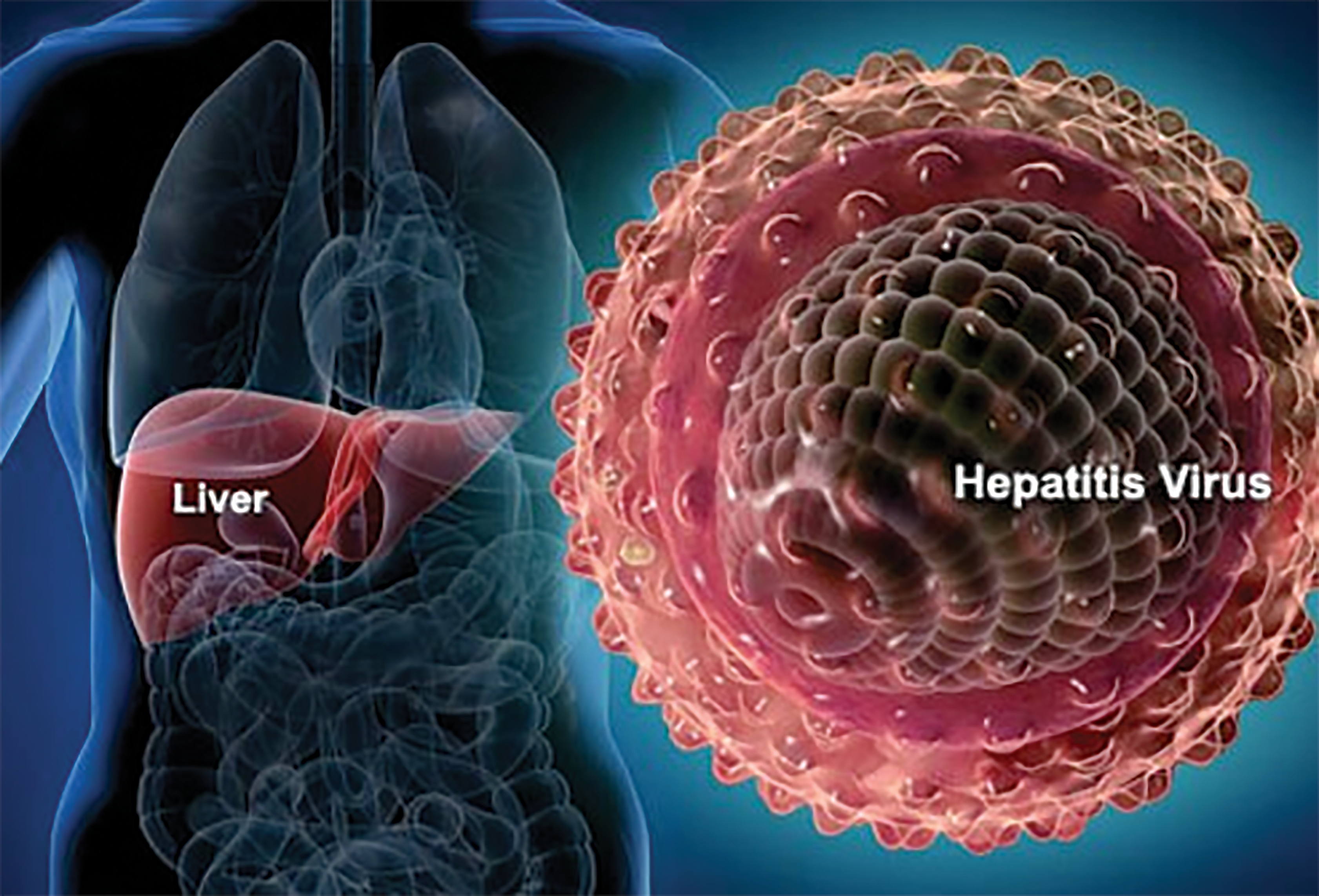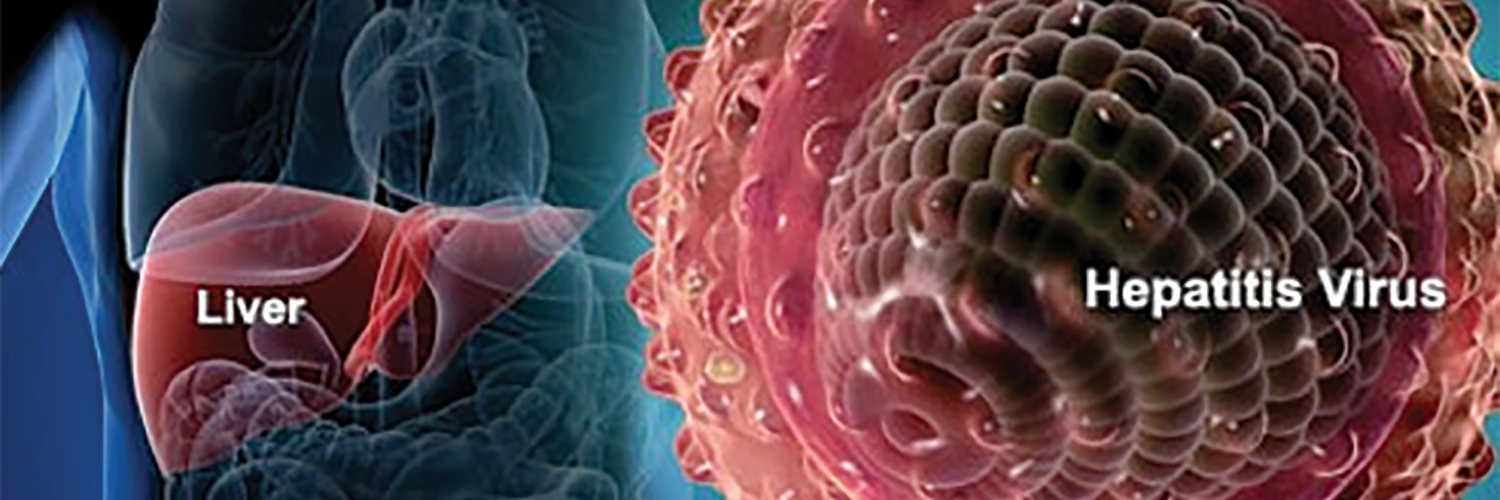
THEME: The World Health Organization launches “One life, one liver” campaign on World Hepatitis Day…
By Own Correspondent
To mark World Hepatitis Day (July 28), WHO is calling for scaling up testing and treatment for viral hepatitis, warning that the disease could kill more people than malaria, tuberculosis, and HIV combined by 2040, if current infection trends continue.
Hepatitis causes liver damage and cancer and kills over a million people annually. Of the five types of hepatitis infections, hepatitis B and C cause most of the disease and deaths. Hepatitis C can be cured; however, only 21% of people living with hepatitis C infection are diagnosed and only 13% have received curative treatment. Just 10% of people living with chronic hepatitis B are diagnosed, and only 2% of those infected are receiving the lifesaving medicine.
Under the theme of “One life, one liver”, WHO’s World Hepatitis Day campaign aims to highlight the importance of protecting the liver against hepatitis for living a long, healthy life. Good liver health also benefits other vital organs – including the heart, brain and kidneys – that rely on the liver to function.
“Millions of people are living with undiagnosed and untreated hepatitis worldwide, even though we have better tools than ever to prevent, diagnose and treat it,” said Dr Tedros Adhanom Ghebreyesus, WHO Director-General. “WHO remains committed to supporting countries to expand the use of those tools, including increasingly cost-effective curative medication, to save lives and end hepatitis.”
WHO will share new guidance to track countries’ progress on the path to the elimination of hepatitis by 2030. To reduce new infections and deaths from hepatitis B and C, countries must: ensure access to treatment for all pregnant women living with hepatitis B, provide hepatitis B vaccines for their babies at birth, diagnose 90% of people living with hepatitis B and/or hepatitis C, and provide treatment to 80% of all people diagnosed with hepatitis. They must also act to ensure optimal blood transfusion, safe injections and harm reduction.
Vaccination, testing and treatment – vital opportunities to protect your liver from hepatitis
The reduction of hepatitis B infections in children through vaccination is a key intervention to limit viral hepatitis infections overall. The target for hepatitis B incidence is the only Sustainable Development Goals’ (SDG) health target that was met in 2020 and is on track for 2030.
However, many countries in Africa do not have access to the birth dose hepatitis B vaccines. Gavi’s recent restart of its Vaccine Investment Strategy 2018 – which includes the birth dose hepatitis B vaccine – will jumpstart newborn vaccination programmes in west and central Africa, where mother-to-child hepatitis B transmission rates remain very high.
To help eliminate mother-to-child transmission, WHO recommends that all pregnant women should be tested for hepatitis B during their pregnancy. If positive, they should receive treatment and vaccines should be provided to their newborns. However, a new WHO report shows that of the 64 countries with a policy, only 32 countries reported implementing activities to screen for and manage hepatitis B in antenatal clinics.
The report also shows that of the 103 countries that reported, 80% have policies to screen and manage hepatitis B in HIV clinics, with 65% doing the same for hepatitis C. Increasing hepatitis testing and treatment within HIV programmes will protect people living with HIV from developing liver cirrhosis and liver cancer.
After years of increasing treatment rates, the rise in the number of people accessing hepatitis C curative treatment is slowing. WHO advocates for taking advantage of price reductions in medication to reaccelerate progress in expanding treatment. A 12-week course of medication to cure hepatitis C now costs nearly R1 000 for low-income countries, down from the original costs of more than R1 billion when first introduced in high-income countries. Treatment for hepatitis B costs less than R500 per year (R40 per month).
For people who want to maintain liver health, WHO recommends hepatitis testing, treatment if diagnosed, and vaccination against hepatitis B. Reducing alcohol consumption, achieving a healthy weight, and managing diabetes or hypertension also benefit liver health. Viral hepatitis is inflammation of the liver caused by a virus.
In total over 350 million people in the world are living with viral hepatitis. Each year over a million people lose their lives because of conditions related to acute hepatitis and chronic infection that cause liver cancer and cirrhosis. Chronic hepatitis B and C infections are the leading cause of liver cancer.
KEY FACTS
- Hepatitis B is a viral infection that attacks the liver and can cause both acute and chronic disease.
- The virus is most commonly transmitted from mother to child during birth and delivery, in early childhood, as well as through contact with blood or other body fluids during sex with an infected partner, unsafe injections or exposures to sharp instruments.
- WHO estimates that 296 million people were living with chronic hepatitis B infection in 2019, with 1.5 million new infections each year.
- In 2019, hepatitis B resulted in an estimated 820 000 deaths, mostly from cirrhosis and hepatocellular carcinoma (primary liver cancer).
- Hepatitis B can be prevented by vaccines that are safe, available and effective.
UNISA APPOINTS WOMAN TO TOP POST
DEDICATION: Prof Zethu Nkosi to head the university’s Dean of the College of Human Sciences…
By Tebogo Mahlaela
Days before assuming her executive role as Unisa’s Dean of the College of Human Sciences, Durban-born Prof Zethu Nkosi is bracing herself to hit the ground running when she takes her post on August 1.
Reflecting on her appointment, Nkosi emphasises the significance of this opportunity for women in leadership and her dedication to student support and mentorship.
“I envision leading the College of Human Sciences (CHS) to become the best in the country by implementing appropriate systems and structures,” she says. “I also aim to align the college’s operational plan with the University’s goals, ensuring that accountability and monitoring strategies are in place.”
Her plans for the college include fostering collaboration among departments and colleges, revamping the curriculum, and providing comprehensive support for students with disabilities. She intends to expand the mentorship programme to encompass both academia and administration, reinforcing responsibility and accountability at all levels. She has also emphasised the importance of effective communication within the college and intends to enhance its presence on various platforms.

Furthermore, Nkosi plans to prioritise support for master’s and doctoral students, encouraging academics to apply for grants that align with the college’s Catalytic Niche Areas. Recognising the impact of Covid-19, she aims to upskill administrative staff and empower all CHS members to utilise the latest online platforms effectively. Additionally, she plans to strengthen partnerships with industry and external stakeholders to ensure that teaching, learning and research remain relevant and impactful. Born and raised in the township of KwaMashu in Durban, KwaZulu-Natal, Nkosi began her educational journey with a Diploma in Nursing and Midwifery at the coastal city’s King Edward VII Hospital. Her passion for education motivated her to pursue further studies at Unisa, where she obtained a Bachelor’s Degree in Nursing Education and Community Science. She later completed her master’s degree and obtained her PhD in Nursing, with a focus on Leadership and Management, from the University of KwaZulu-Natal.
Nkosi’s impressive career has seen her working as a nurse at renowned hospitals, such as Groote Schuur and King Edward, as well as undertaking a three-year teaching stint at a nursing school in the United Arab Emirates. Throughout her experiences, Nkosi has demonstrated unwavering integrity and perseverance, overcame challenges and embraced cultural diversity.
Growing up in Kwa-Mashu, Nkosi encountered various challenges. However, she persevered, driven by her passion for education and a determination to succeed. She attributes her achievements to her supportive family, her focus on goals, and her ability to turn obstacles into opportunities.
When asked about the secret of her success, she shared her dedication to research and writing – reflected in the fact that she uses Fridays for student supervision and article writing. She encourages the CHS community to adopt this strategy and emphasises the importance of hard work, seeking help when needed, and networking with experts in the field. Nkosi’s motto, “Lift as you rise”, guides her mentorship efforts, as she believes in empowering others as she progresses in her career.


































